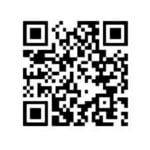When it comes to private security agents, success is often determined by the amount and type of training the agent has undergone. Training can help shape and mold the agent, providing them with the needed instincts to think on their feet and understand how to approach all situations with the client’s safety first. This training is not like military or law enforcement instruction. It is an entirely different type of protection and threat prevention with choreography, intelligence analysis, and a proactive mindset at its core.
Special private armed security agents can take steps to enhance and increase their skills for better client safety. One key example is drone training. Training security and protection agents to be drone pilots instantly increases their skills and provides a much broader, more thorough form of security and safety enhancement.
The Value of Cross-Training
When a high-level armed security agent is trained as a drone pilot, it provides them with dual certification, allowing them to provide better services to high-profile clients in a more efficient and often more cost-effective way.
To be a drone pilot, there are specific modules that the agent must pass, for example, weather or airspace. The Federal Aviation Administration (FAA), governs the drone pilot’s license. Many pilot licenses exist, such as private, commercial, or instrument ratings. Part 107, remote drone pilots, is the license that armed security is being trained in.
Alongside a training course, to become a commercial drone pilot, you must pass a test of sixty questions. Most questions are about the airspace, weather, airspace, aircraft performance, and relevant laws and legislation, such as when and where to fly a drone.
The World Protection Group developed a system where we cross-train agents as drone pilots by sending them to the best drone schools. When they take the drone test, there are no flight tests required. However, WPG has the agents study the modules they must pass and then take an eight-hour minimum drone flying training course to understand the basics of flying a drone. This also covers any specific areas that are crucial for WPG. All the agents are level 100 and 200 FEMA training to assist with natural disasters or attacks and be deployed to assist emergency services if called upon.
Value Added from FAA Commercial Drone Certification
Having a streamlined process like this that enables agents to become drone-certified quickly and with relative ease is highly beneficial. For example, if WPG suddenly requires ten agents to fly drones and carry out drone patrols for clients or an event, these can be resources relatively quickly.
They would study all the online videos and go to a recognized school to learn to fly drones on the ground. Another option is sending agents to a high-level ‘crash course’ where they would study the material for eight hours straight and be confident to take the test. This is often carried out over two days, where one day is focused on the test material. The agents will study the videos twice, go to an eight-hour crash course of all the modules, and then take the test and pass.
The course covers a vast amount of material, including essential regulations. These include operating requirements, applicable regulations, air classification requirements, weather aircraft performance, loading and performance, emergency procedures, crew resource management, radio communications, psychological effects of alcohol and drugs, airport operations, and nighttime operations.
The second day focuses on eight hours of flying the drone and all the basics. Following this, the agent can continue to specialize and take further courses in drone piloting, such as drone mapping. This is where the agent would use a drone to create a 3D understanding of a client’s estate, and it can be beneficial for programming routine patrols or identifying security needs. This ensures that the security detail is best positioned to enhance the estate’s security system and run more effective security operations.
An Elite Drone Protection Company
At WPG, drone training is only one branch of agents’ specialist training. It is joined by FEMA training and armed security training. This ensures that the highest quality security agents are out there working.
The benefit extends beyond high-profile clients and celebrities. 3D mapping for Risk Assessments, for instance, can be used to make university campuses,luxury gated communities, and shopping malls safer and lower the risk level of an attack.
When you have an armed security agent with additional certification, it allows the agent to step up and support other services, like emergency responders, in times of need and enhance the security and protection services they offer.








